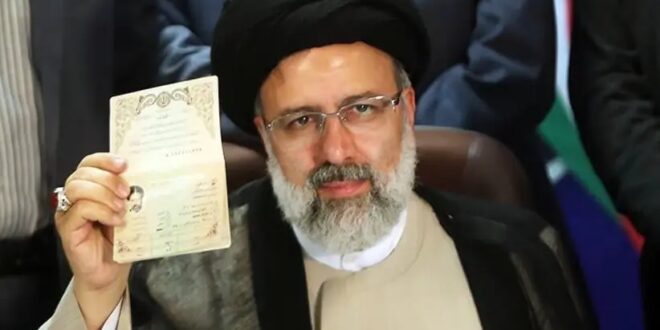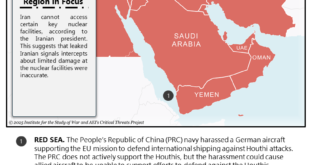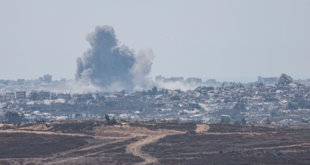A mark of his campaign has been Iranian self-resilience and the “resistance economy” having the ability to overcome American sanctions.
Iran presidential front-runner and Judiciary chief Ebrahim Raisi has embraced the possibility of returning to the 2015 nuclear deal as long as Iran’s interests are met, Iranian media reported earlier this week.
Raisi made the statement in a series of presidential debates that have been taking place since last week in the lead up to the June 18 presidential election.
Since Raisi, from the hard-liner camp, is viewed as Supreme Leader Ayatollah Ali Khamenei’s hand picked candidate for president, and possible eventual pick to succeed himself, his positive statement toward the so-called Joint Comprehensive Plan of Action (JCPOA) – the 2015 Iran nuclear agreement – turned heads.
In general, Raisi has slammed current President Hassan Rouhani and his pragmatist camp as being too compromising with the US and the West.
A mark of his campaign has been Iranian self-resilience and the “resistance economy” having the ability to overcome American sanctions by producing more critical items for everyday life domestically.
In contrast, his statement earlier this week that he would not oppose a return to the JCPOA in the right circumstances is not that different from Rouhani and pragmatist policy.
The main difference between the hard-liner and pragmatist camp may simply be a matter of months.
If Rouhani would have preferred a return to the deal before the June 18 Election Day, both to enhance his legacy and to empower another pragmatist candidate, the latest predictions are that Raisi and Khamenei prefer that a deal wait until August, when the new president would take office.
Raisi’s somewhat pro-JCPOA statement was also noteworthy as in an earlier debate he had been criticized for undermining relations with the West and his response had evaded addressing the JCPOA as an issue head-on.
His follow-up answer in a later debate could signal a clear process to prepare the hard-liner base for compromising with the West and the US in substance, even if the tone will continue to be one of conflict.
During the presidential election of 2017, Raisi made some similar election season statements moderating his stance that he would abide by the JCPOA despite his and the hard-liner’s frequent criticism of talks with the West.
However, in that election Rouhani defeated Raisi, who came in second place with almost 16 million votes, or close to 40% of actual voters.
This time, Khamenei’s Guardian Council disqualified all viable contenders from rival camps who could have beaten Raisi, including even the current vice president and a former parliamentary speaker, reportedly to guarantee his victory.
None of the six other candidates approved to run are viewed as serious national contenders and the debates are viewed by many Iranians as going through the motions.
Experts predict the election turnout could be an all-time low, but by holding debates with six other candidates and making positive statements about the JCPOA, the hard-liners appear to be trying to build Raisi’s legitimacy to some degree.
 Eurasia Press & News
Eurasia Press & News



